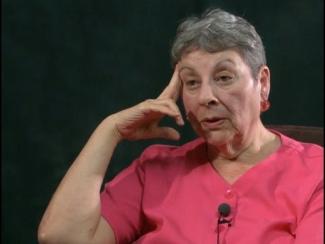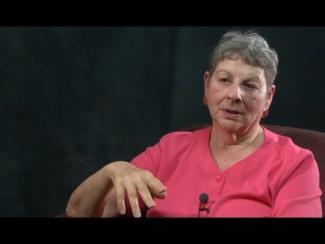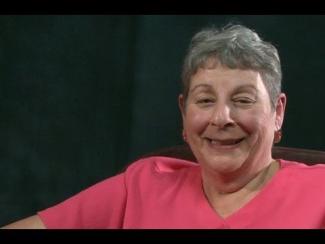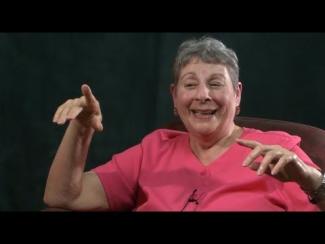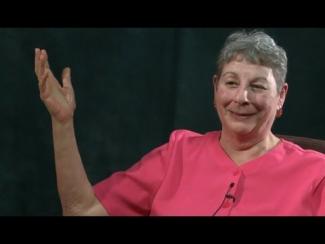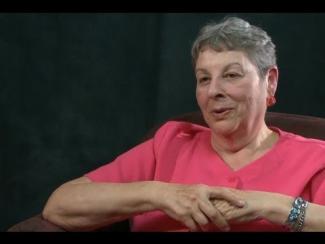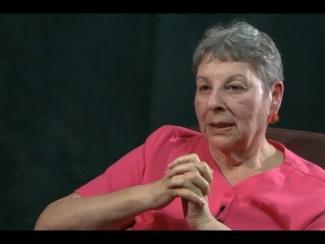The Yiddish Book Center's
Wexler Oral History Project
A growing collection of in-depth interviews with people of all ages and backgrounds, whose stories about the legacy and changing nature of Yiddish language and culture offer a rich and complex chronicle of Jewish identity.
Miriam Slater's Oral History
Miriam Slater, retired professor of European history, was interviewed by Christa Whitney on September 9, 2011 at the Yiddish Book Center in Amherst, Massachusetts. Her mother, born in America, disappointed her German Jewish parents by marrying an Ashkenazi Jew with no education. Miriam's parents and guardians tried to assimilate, associated religiosity with backwardness, and were completely secular. After her mother died, Miriam lived with various guardians, often supporting herself by doing housework. She describes her childhood as "Dickensian." At fifteen Miriam moved in with her boyfriend's socialist, secular family and married him two years later. She remembers how her mother-in-law, with no formal education, spoke Yiddish, Polish, Russian and English and read Fyodor Dostoevsky in the original. Miriam went to work at a knitting store where many of the clients, including many Holocaust survivors, spoke Yiddish. She and her husband, who had always wanted to farm, eventually bought a chicken farm in New Jersey with her sister-in-law and her husband. Miriam decided to go back to school, enrolling in Douglass, a women's college, where she majored in history, focusing on sixteenth and seventeenth century Britain. This was in the late 50's before the women's movement, and Miriam describes the issues faced by a married (and eventually pregnant) woman in college and graduate school at that time. She was not intimidated by unreasonable bathroom rules, being unwelcome in the student dining room, and hostility from male students. Encouraged by a mentor, Miriam pursued her PhD at Princeton and set her sights on an academic career. She mentions that the historical period that she studied was Christian and male-oriented, and it was not until she began teaching at Hampshire College that she began focusing on feminist topics such as a study of American women professionals with colleague Penina Glazer. Although not religious, Miriam always identified as a Jew and was proud of her heritage, despite the negative messages she remembers from her childhood. When the Yiddish Book Center was built on the Hampshire campus she got involved and took a language course. In her seventies, although still an atheist, she joined the egalitarian synagogue in Northampton, partly in response to the antisemitism she noticed on trips to see her daughter in Texas. She doesn't go to services, but she does enjoy a very diverse Bible-reading group led by the rabbi. Miriam feels that the women's liberation movement had a significant effect on her opportunities and her academic scholarship. She muses about the similarities between being a Jew in a predominantly Christian society and being a woman in an extremely male-dominated institution. When asked about the role of Yiddish in her life today, Miriam expresses her pleasure in the path the Yiddish Book Center has taken and its increased emphasis on education. She has few regrets; if she had it to do over again, she wishes she raised her children in a synagogue and within a Jewish community so that they would have had the choice to live their adult lives as practicing Jews.
This interview was conducted in English.

